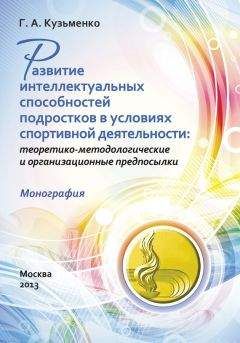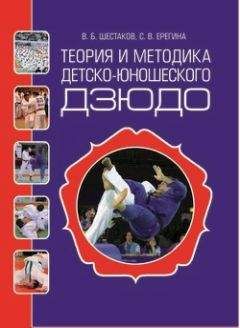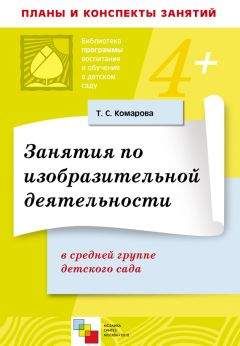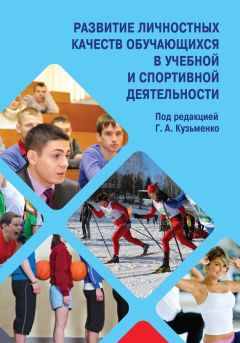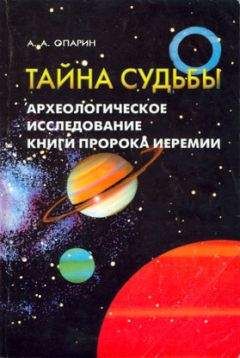Ознакомительная версия.
301. Чиликина И. А. Локус контроля как социально-психологическая детерминанта представлений о лидерских качествах: Автореф. дис… к-та псих. наук. – М., 2010.
302. Чудновский В. Э. Психологические аспекты смысла жизни // Психолого-педагогические и философские аспекты проблемы смысла жизни / Ред. В. Э. Чудновский, А. А. Бодалев, Л. Н. Карпова. – М.: Изд-во ПИ РАО, 1997. – С. 111–126.
303. Чумаков М. В. Эмоционально-волевая регуляция деятельности в социальном взаимодействии: Автореф. дис. д-ра псих. наук. – Ярославль, 2007.
304. Чуприкова Н. И. Время реакций и интеллект: почему они связаны // Вопросы психологии. – 1995. – № 4.
305. ЧуприковаН. И. Психология умственного развития: принцип дифференциации. – М.: Столетие, 1997.
306. Чуприкова Н. И. Умственное развитие и обучение // Психологические основы развивающего обучения. – М.: Столетие, 1995.
307. Шадриков В. Д. Деятельность и способности. – М.: Логос, 1994.
308. Шадриков В. Д. Ментальное развитие человека. – М.: Аспект Пресс, 2007.
309. Шадриков В. Д. Психология деятельности и способности человека. – М.: Логос, 1996.
310. Шадриков В. Д. Способности человека. – М.: Изд-во ИПП; Воронеж: Изд-во НПО «МОДЭК», 1997.
311. Шадриков В. Д. Формирование психологической системы деятельности // Проблемы системогенеза деятельности / Под ред. В. Д. Шадрикова. – Ярославль: Изд-во ЯГУ, 1980. – С. 5–31.
312. Шелков О. М., Булкин В. А. Возрастные особенности моторно-психической регуляции двигательной деятельности юных спортсменов // Тезисы докладов XV Всероссийской научно-практической конференции «Организационные и научно-методические основы системы подготовки спортивного резерва в Российской Федерации и пути ее совершенствования». – М.: Изд-во ВНИИФК, 1995. – С. 138–139.
313. Шешукова О. В. Гендерные особенности формирования социального интеллекта младших школьников: Автореф. дис… к-та псих. наук. – М., 2008.
314. Шешукова О. В. К вопросу об экспериментальном исследовании социального интеллекта // Среднее профессиональное образование. – 2007. – № 8. – С. 10–12.
315. Ширванова С. Р. Интегральная система оценивания двигательных действий учащихся младших классов на уроке физической культуры: Автореф. дис… к-та пед. наук. – Смоленск, 2010.
316. Шкуратова И. М. Когнитивный стиль и общение. – Ростов-н/Д.: Изд-во РГПУ, 1994.
317. Штерн В. Умственная одаренность: Психологические методы испытания умственной одаренности в их применении к детям школьного возраста / Под ред. В. А. Лукова. – СПб.: Союз, 1997.
318. Шютц А. Смысловая структура повседневного мира: очерки по феноменологической социологии / Сост. А. Я. Алхасов. – М.: Изд-во фонда «Общественное мнение», 2003.
319. Щепкина И. В. Психофизиологические и семейные предикторы согласования интеллекта и мотивации достижения: Автореф. дис… к-та псих. наук. – Ростов-н/Д, 2007.
320. Эльконин Д. Б. Детская психология. – М.: Учпедгиз, 1960.
321. Юзвишин И. И. Основы информациологии. – М.: Информациология: Высшая школа, 2000.
322. Юркевич B. C. Проблема эмоционального интеллекта // Вестник практической психологии образования. – 2005. – № 3 (4). – С. 4–10.
323. Ядов В. А. О диспозиционной регуляции социального поведения личности // Методологические проблемы социальной психологии. – М.: Наука, 1975. – С. 89–105.
324. Якимович В. С. Проектирование системы физического воспитания детей и молодежи на основе личностно-ориентированного образования: Автореф. дис… д-ра пед. наук. – М., 2002.
325. Якобсон П. М. Психология чувств и мотивации. – М.: Изд-во ИПП, 1998.
326. Яковлева Н. В. Взаимосвязь социального интеллекта и дивергентного мышления субъектов разноплановой деятельности: на примере подростков: Автореф. дис… к-та псих. наук. – Хабаровск, 2010.
327. Яковлева Н. В. Разноплановая творческая деятельность как фактор развития социального интеллекта и дивергентного мышления // Известия Южного федерального университета. Педагогические науки: научный журнал. – 2009. – № 12. – С. 125–133.
328. Ямбург Е. А. Управление развитием адаптивной школы. – М.: Пер Сэ, 2004.
329. Anderson M. The development of intelligence. – Hove: Psychology Press, 1999.
330. Azuma H., Kaschiwagi K. Descriptors for an intelligent person: A Japanese Study // Japanese Psychological Research. Journ. of Personality and Social psychology. – 1985. – № 49. – P. 607–627.
331. Berry J. W. Toward a universal psychology of cognitive competence // Inter. J. of Psychol. – 1984. – Vol. 19. – P 335–361.
332. Boreham C. A., Cran G. W., Savage J. M., Strain J. J. Association Betweein Sport Participation and Indices of Heals and Fitness in Adolescents // ISSCE'96. Abstracts. – Bangalore, India, 1996. – P. 61.
333. Bruner J. S. Shapiro D., Tagiuri R. The meaning of traits in isolation and combination // Personal perception and interpersonal behavior. – Stanford, 1959.
334. Burt C. The evidence for the concept of intelligence // British Journal of Educational Psychology. – 1955. – Vol. 25. – P. 158–77.
335. Carroll J. B. Human cognitive abilities: A survey of factor-analytic studies. – N. Y.: Cambridge University Press, 1993.
336. Cattell R. B. Theory of fluid and crystallized intelligence: A critical experiment // Journal of Educational Psychology. – 1963. – Vol. 54 (1). – P. 1–22.
337. Dasen P., Shurmans M.-N. The influence of acculturation of the social representations of intelligence // Paper Presented at 2 European Congress of Psychology. 8-12 July. – Budapest, 1993. – P. 32.
338. Eysenck H. J., Evans D. Know your child’s IQ. – Great Britain: Mind Games, 1995.
339. Feuerstein R. The theory of structural cognitive modifiability // B. Z. Presseisen (Ed). Learning and thinking styles: Classroom interaction. – Washington, D. C.: Nat. Educat. Association, 1990. – P. 68–134.
340. Fischer K. W. A theory of cognitive development: The control and construction of hierarchies of skills // Psychological Review. – 1980. – Vol. 87 (6). – P. 477–531.
341. Fodor J., McLaughlin B. Connectionism and the problem of Systematicity: Why Smolensky’s Solution doesn’t work // Cognition. – 1990. – Vol. 35. – P. 183–204.
342. Gardner H. Multiple Intelligences: the Theory in Practice. – N. Y.: Basic Books, 1993.
343. Gardner H. E. Frames of Mind: The Theory of Multiple Intelligences. – N. Y.: Basic book, 1983.
344. Guilford J. P. Some changes in the Structure-of-Intellect model // Educational and psychological measurement. – 1988. – Vol. 48. – P. 1–4.
345. Guilford J. P. The nature of human intelligence. – N. Y., 1967.
346. Horn J. L., Knapp J. R. On the subjective Character of the Empirical Base of Guilford’s Structure-Intellect Model // Psychological Bulletin. – 1973. – Vol. 80. – P. 33–34.
347. Horn J. L., Noll J. Human cognitive capabilities: Gf-Gc theory // Contemporary intellectual assessment: Theories, tests and issues / Ed. by D. P. Flanagan at al. – N. Y.: Guilford, 1997. – P. 53–91.
348. Kim C. K. Attitude Training and Muscular Adaptation // ISSCE’96. Abstracts. – Bangalore, India, 1996. – P. 64–66.
349. Kosmitzki C., John O. P. The implicit use ofexplicit conceptions of social intelligence // Personality & Individual Differences. – 1993. – Vol. 15. – P. 11–23.
350. Lewin K. Principles of topological psychology. – N. Y., 1936.
351. Mayer J. D., Caruso D., Salovey P. Selecting a measure of emotional intelligence: The case for ability scales // The handbook of emotional intelligence / Ed. by R. Bar-On, J. D. A. Parker. – N. Y.: Jossey-Bass, 2000. – P. 320–342.
352. Missoum G. Psycho-pedagogie des activities du corps. – Paris: Vigot, 1986.
353. Murray H. A. Thematic Apperception Tests. – Cambridge: Harvard University Press, 1935–1943.
354. Naglieri J. A., Das J. P. Planning, attention, simultaneous and successive (PASS) cognitive processes as a model for intelligence // Journal of Psychoeducational Assessment. – 1990. – Vol. 8. – P. 303–337.
355. Nelson J. C., Rizwanuddin, Griffin M. P., Moorman J. R. Probing the order within neonatal heart rate variability // Pediatr. Res. – 1998. – № 6. – P. 823–831.
356. O’Sullivan M., Guilford J. P., Mille R. de. The measurement of social intelligence // Report from the Psychological Laboratory, University of Southern California. – 1965. – № 34.
357. Raven J. C. The Raven Progressive Matrices: A review of national norm studies and ethnic and socioeconomic variation within the United States // J. of Educat. Measurement. – 1989. – Vol. 26. – P. 1–16.
358. Schneider W. Acquiring expertise: Determinants of exceptional performance // International handbook of Research and Development of Giftedness and Talent. – Oxford: Pergamon, 1996. – P. 311–324.
359. Spearman C. The abilities of man. – N. Y.: Macmillan, 1927.
360. Staats A. V. Personality Theory, Abnormal Psychology and Psychological Measurement // A Psychological Behaviorism. Behavior Modification. – Vol. 17. – 1993. – P. 8–42.
361. Sternberg R. Implicit theories of intelligence, creativity and wisdom // Journal of Personality and Social Psychology. – 1985. – Vol. 49. – P. 607–627.
362. Thurstone L. L. Primary mental abilities. – Chicago: University of Chicago Press, 1938.
363. Torrance E. P. Developing creative thinking through school experience // (Ed.) S. J. Parnes, H. F. Harding. A Source Book of creative Thinking. – N. Y., 1962;
364. Torrance E. P. Education and creativity // (Ed.) C. W. Taylor. Creativity: Progress and Potential. – N. Y., 1964.
365. Vernon Ph. E. The structure of Human Abilities. – London: Methuen, 1971.
366. Wechler D. The measurement and appraisal of adult intelligence. – Baltimor: Williams & Wilkins, 1958.
Ознакомительная версия.
